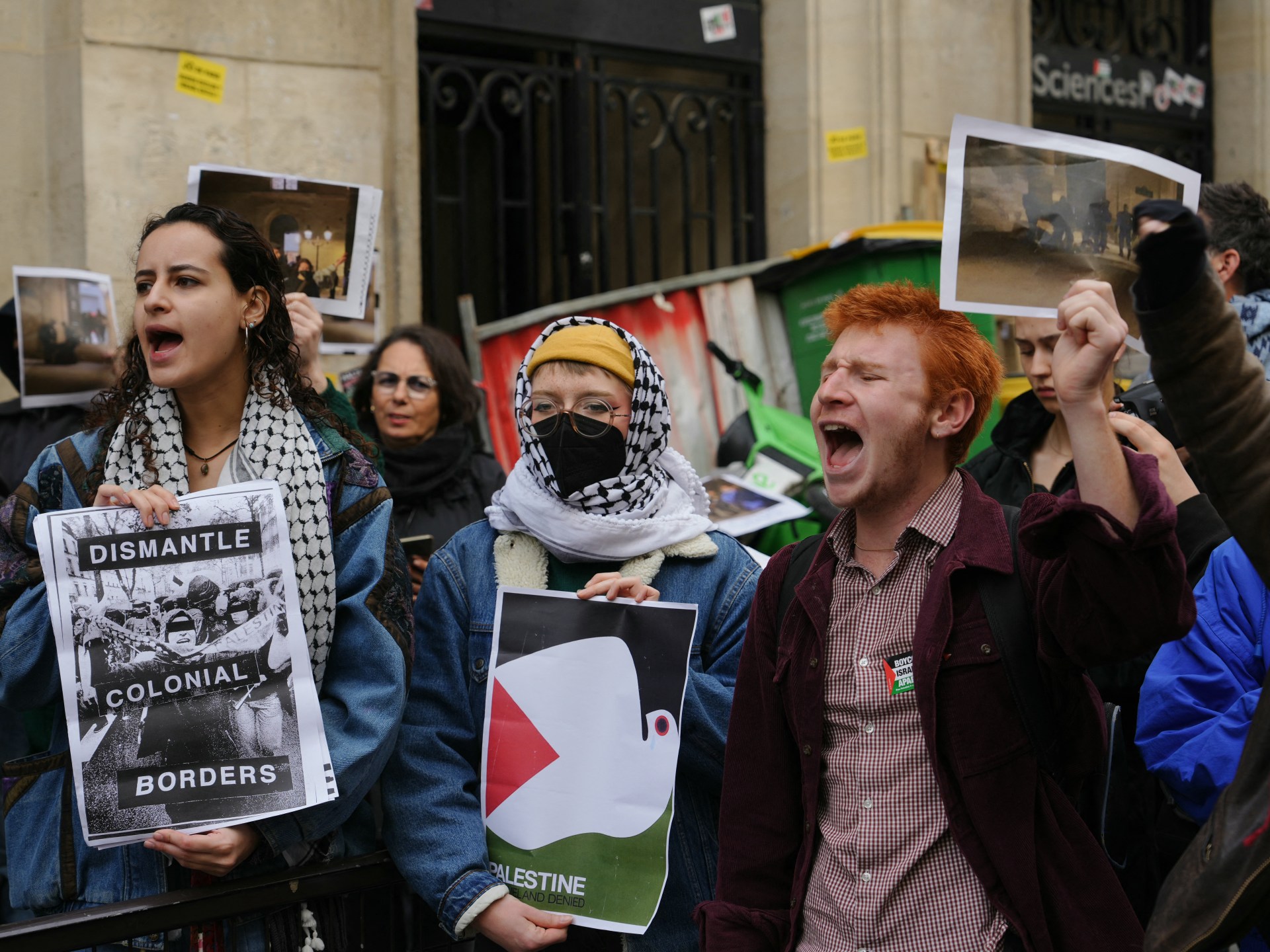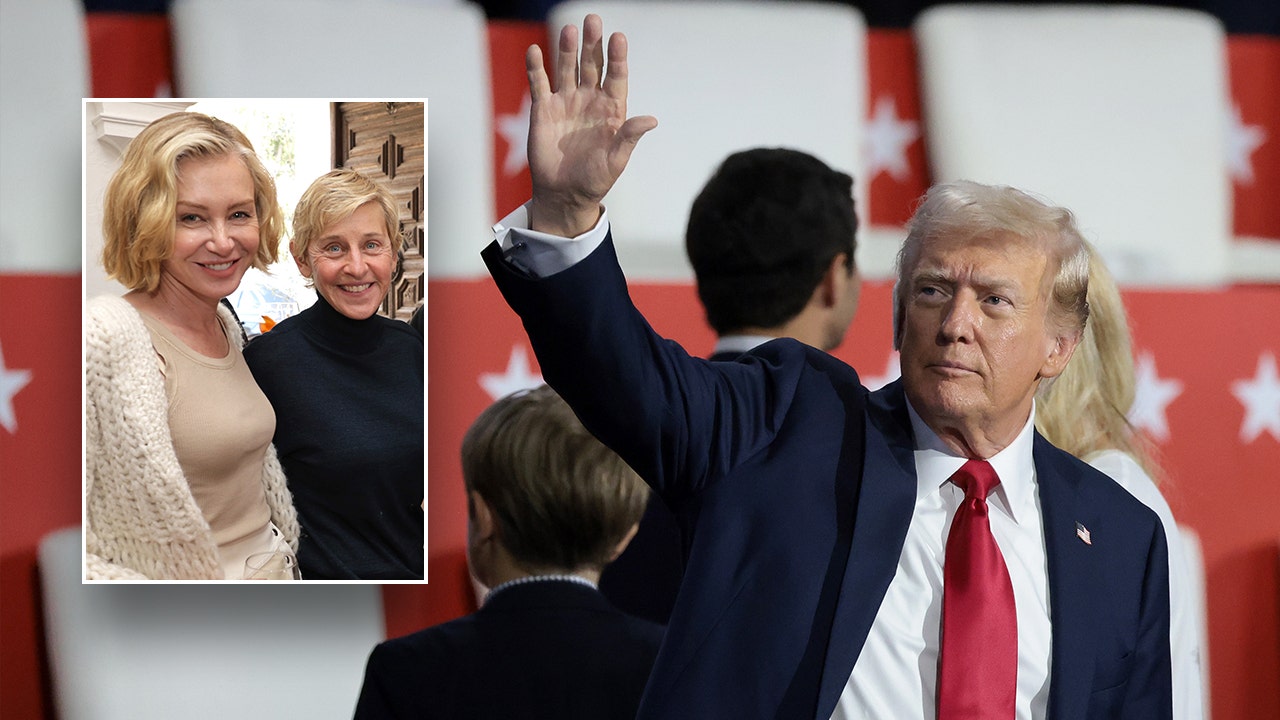World
Are US campus protests against Israel’s war on Gaza going global?

Clashes between students and police officers have been reported all over the United States during intensifying university protests.
What started as the Gaza solidarity encampment at Columbia University, where students are camping inside campus to push their institute to divest from companies linked to Israel, has since spread to campuses in California, Texas and other states.
Now, more than 20 universities in the US are protesting against Israel’s war on Gaza, where Israel’s military offensive has killed more than 34,000 people and its blockade has caused starvation.
But the protests are not limited to the US, as students worldwide have been demonstrating in support of Gaza since the outbreak of the war on October 7. Following the Columbia encampments, the protests have further spread to universities from France to Australia. Here is all you need to know about student protests for Gaza outside of the US:
Which global universities are holding pro-Palestine protests?
- In Paris, France, Sorbonne University students have taken to the streets. Additionally, the Palestine Committee from Sciences Po, is organising a protest where students set up about 10 tents on Wednesday. Despite a police crackdown, the protesters regathered on Thursday.
- In Australia, students from the University of Sydney set up pro-Palestine encampments on Tuesday, and they were continuing to protest on Friday. Also, University of Melbourne students pitched tents on the south lawn of their main campus on Thursday.
- In Italy, Rome, students from Sapienza University organised demonstrations, sit-ins and hunger strikes on April 17 and April 18.
- Since April 19 night, students from the University of Warwick’s group Warwick Stands With Palestine have occupied the campus piazza located in England, United Kingdom. In Leicester, England, a protest broke out on Monday in which students from the University of Leicester Palestine Society also participated.
- Last month, students from the University of Leeds occupied a campus building in protest against the university’s involvement with Israel.
What are the demands of student protesters outside the US?
Hicham, a student protesting at Sciences Po, which is also called the Paris Institute of Political Studies, told Al Jazeera, “We have a few demands but one of them is to start investigating all of the ties they [Sciences Po] have with the state of Israel, which [are] academic and financial”.
He added that it has become “extremely hard” to talk about Palestine in France due to the way police respond.
The organisers additionally want Sciences Po to condemn Israel’s actions.
Sorbonne students are calling on the French government to help Palestinians.
The University of Sydney students are demanding that their institute cut ties with Israeli universities and arms manufacturers, the Sydney Morning Herald reported.
The Warwick students have demanded that the university divest from companies that they have identified are funding “genocide” perpetrated by Israel, Warwick’s student-run newspaper, The Boar, reported. The Boar quoted an unnamed student protester saying that, while the US protests had invigorated them, they were planning to take action regardless.
The protest in Leicester on Monday was outside the Elbit Systems UK drone factory, calling for the factory’s shutdown. The student protesters at Leeds last month demanded the suspension of Jewish chaplain Zecharia Deutsch who served in the Israeli army during the war on Gaza.
Is there a police crackdown on pro-Palestine protesters outside the US?
On Wednesday, police broke up the Sciences Po demonstration after the institute made “numerous attempts” to evacuate the students peacefully, AFP reported.
The institute’s Palestine Committee released a statement on Thursday saying the protesters were “carried out of the school by more than 50 members of the security forces,” adding that “around 100” police officers were “also waiting for them outside”.
Hicham said that he and his fellow students had been occupying their school for three days. “We went to one building, they [the university] called the cops on us, we had to get out, so we went to the main historical building,” he said.
“But I think the more repression happens, the more people are mobilising,” he said. “We were maybe 300 people before, [but] now we’re 600.”
The students at Sorbonne were also surrounded by riot police, as shown in an Al Jazeera video from Thursday.
“This will continue as long as we don’t have an open and serious conversation about the issue,” a student from Sorbonne University told Al Jazeera.
Eraldo Souza dos Santos, a historian who specialises in the global history of social movements at the Pantheon-Sorbonne University in Paris, said police crackdowns had become more common in response to protests in France in recent years. “It is increasingly the government and the police response to civil disobedience, especially under [President Emmanuel] Macron,” he said.
He noted that in 2018, more than 2,500 riot police officers were mobilised to clear a ZAD (“Zone a Defendre” – or, zone to defend) set up by members of an anarchist anti-capitalist and environmental movement which had occupied fields close to the village of Notre-Dame-des-Landes in northern France in an effort to block construction of a new airport. Police fired teargas at the group. “Politicians from the centre to the far right have since said that the ZAD was a ‘zone of lawlessness’ and that it must not be allowed to happen again,” Souza dos Santos said.
“The ZAD has since been mobilised in French political rhetoric to justify early crackdowns on social movements like the one we saw at Sciences Po.”









